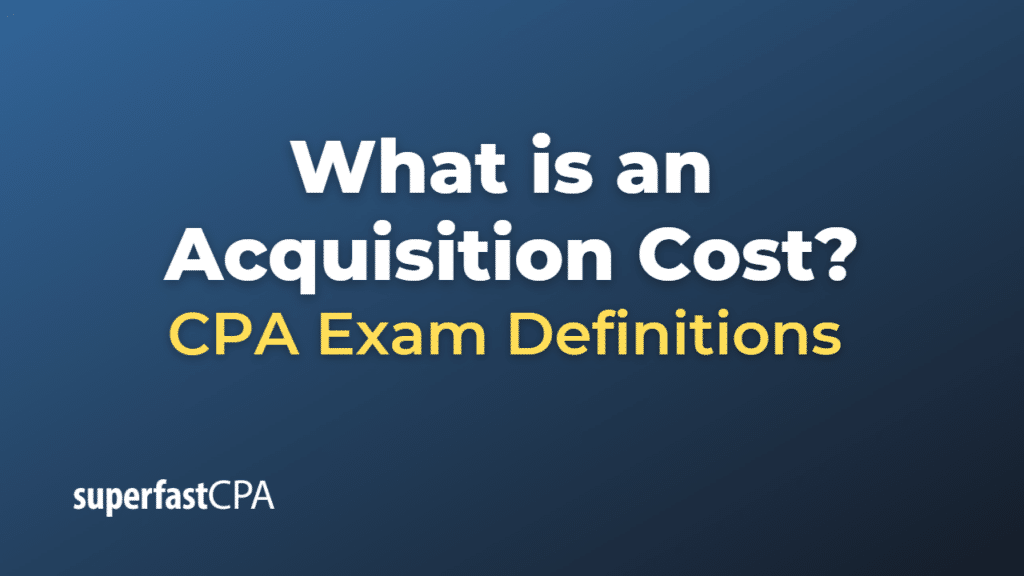Acquisition Cost
An acquisition cost refers to the total expense incurred by a company when purchasing an asset or acquiring another business. The acquisition cost includes not only the purchase price of the asset or target company but also all related expenses, such as transaction fees, legal fees, consulting fees, and any costs associated with integrating the new asset or business into the acquiring company’s operations.
In the context of a business acquisition, the acquisition cost may consist of the following:
- Purchase price: The amount paid to the target company’s shareholders for their ownership stakes. This could be in the form of cash, stock, or a combination of both.
- Transaction fees: These include fees paid to investment bankers, lawyers, accountants, and other professionals who assist in the acquisition process.
- Regulatory and compliance costs: Expenses related to obtaining necessary regulatory approvals, performing due diligence, and ensuring compliance with applicable laws and regulations.
- Integration costs: Expenses associated with combining the target company’s operations, systems, and workforce with those of the acquiring company. This may include costs related to employee training, technology integration, office consolidation, and other organizational changes.
It’s important for companies to accurately estimate and account for acquisition costs in their financial planning and decision-making processes, as these costs can have a significant impact on the overall financial performance and return on investment of an acquisition.
Example of an Acquisition Cost
Let’s say Company A wants to acquire Company B. Here’s a breakdown of the acquisition costs:
- Purchase price: Company A agrees to pay $50 million for 100% ownership of Company B.
- Transaction fees: a. Investment banker fees: Company A hires an investment bank to advise on the acquisition process and pays them a fee of $1 million. b. Legal fees: Company A spends $500,000 on legal fees for drafting and reviewing contracts, conducting due diligence, and handling other legal matters related to the acquisition. c. Accounting fees: Company A pays an accounting firm $200,000 to review Company B’s financial statements and perform other accounting tasks.
- Regulatory and compliance costs: Company A spends $300,000 to obtain necessary regulatory approvals, conduct additional due diligence, and ensure compliance with applicable laws and regulations.
- Integration costs: a. Employee training: Company A spends $150,000 on training programs to help Company B’s employees adapt to new systems and procedures. b. Technology integration: Company A spends $250,000 on integrating Company B’s IT systems with its own. c. Office consolidation: Company A spends $100,000 to consolidate office spaces and relocate employees.
The total acquisition cost for Company A to acquire Company B would be:
$50,000,000 (purchase price) + $1,000,000 (investment banker fees) + $500,000 (legal fees) + $200,000 (accounting fees) + $300,000 (regulatory and compliance costs) + $150,000 (employee training) + $250,000 (technology integration) + $100,000 (office consolidation) = $52,500,000
In this example, the acquisition cost is $52.5 million, which includes the purchase price and all related expenses. Company A would need to consider this total cost when evaluating the potential return on investment and the overall financial impact of the acquisition.













